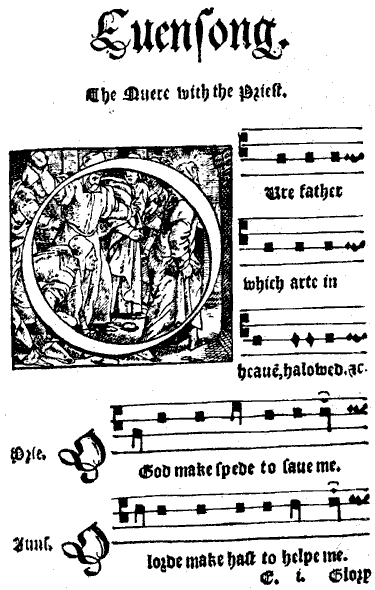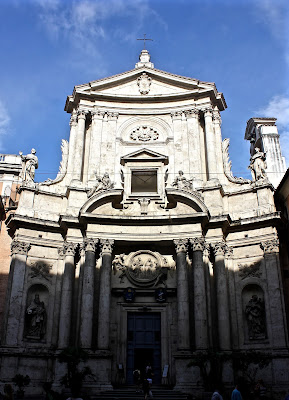What is Evensong?
Evensong is the lovely nickname for the service of Evening Prayer from the Book of Common Prayer. Its sister service is Mattins, which is the nickname for the service of Morning Prayer, also from the Book of Common Prayer. Together with the Holy Eucharist (also known as the Mass and Communion Service and instituted for his disciples by Jesus himself), these three services are the principal liturgies of the Anglican tradition since the year 1549, which was when the Book of Common Prayer was first authorized for the Church of England.
Both Mattins and Evensong were taken from the monastic offices of prayer of the Medieval English Church. These monastic offices in turn were developed over a thousand years, from around the years 500 to 1500.
“O Lord, open thou our lips.” “O God make speed to save us.” These prayer-cries reach all the way back to the Old Testament.
After these versicles are sung by the priest and choir, we proceed to the Psalms which are at the very heart of the service. These are chanted in Anglican Chant, a post-reformation evolution of Plainsong. The Prayer Book plan is to expose us to the full range of the Psalms. If we were to recite them every day, they all would be familiar to us, like old friends. For Jesus, the Psalms formed his own prayer life; they were his Prayer Book and Hymnal. He died with fragments of the Psalms on his lips – for example, “My God, why hast thou forsaken me?” from Psalm 22.
Following the Psalms are the readings from Holy Scripture, punctuated by the Canticles, Magnificat and Nunc dimittis. There are two Scripture readings at a full Evensong, the first from the Old Testament and the second from the New Testament.
The two punctuating Canticles are prayer-songs from Saint Luke’s Gospel. The Magnificat is the Song of Mary, which she sings when visiting her pregnant cousin Elizabeth. Elizabeth is carrying John the Baptist. Mary is carrying Jesus. As Mary greeted Elizabeth, the as yet unborn John leaped at the approach – an early anticipation of his role as Christ’s forerunner and prophet. Thus Mary sang the Magnificat. The Nunc dimittis, or Song of Simeon, was sung by an old saint in the Temple at the time of Mary’s Purification and her Presentation, with Joseph, of Jesus, to the Lord. “Mine eyes,” said Simeon, “have seen thy salvation.”
The use of these canticles over the centuries has produced an amazing repertoire of choral music to accompany them, some of the greatest pieces of sacred music in existence, composed by musicians of the rank of William Byrd or Henry Purcell. These choral Canticles make Evensong the crown jewel of the Anglican Choral tradition, whether in Canterbury or even here in Rome at All Saints' Church.
The completion of the service of Scripture at Evensong is summed up in the Apostles’ Creed, which is the creed of Holy Baptism, and it leads us to the concluding prayers: the Kyrie eleison, the Lord’s Prayer, the lesser litany (also set to beautiful music), and the concluding three collects. There is one for the Day/ Week, and the two evening collects, deeply familiar and beloved: “Give unto thy servants that peace which world cannot give…” “Lighten our darkness, we beseech thee O Lord.”
What we have here is the sanctification of time, morning and evening and the praise of God. There is something especially powerful about the sanctification of Evensong. The day is over. The night is at hand. Just as each day is a kind of whole life of its own (“this is the day which the Lord hath made; let us rejoice and be glad in it!”), so each evening signifies a little death: “Now I lay me down to sleep. I pray the Lord my soul to keep. If I should die before I wake, I pray the Lord my soul to take.”
The plan of The Book of Common Prayer was to have Morning and Evening Prayer said or sung every day, if not in church then privately, by every member of the clergy – and hopefully with some lay people as well.




